Time for Puerto Rico, Virgin Islands to Go All Green
As Elon Musk and others have made clear, the islands’ centralized fossil-fueled electric grids should not be rebuilt.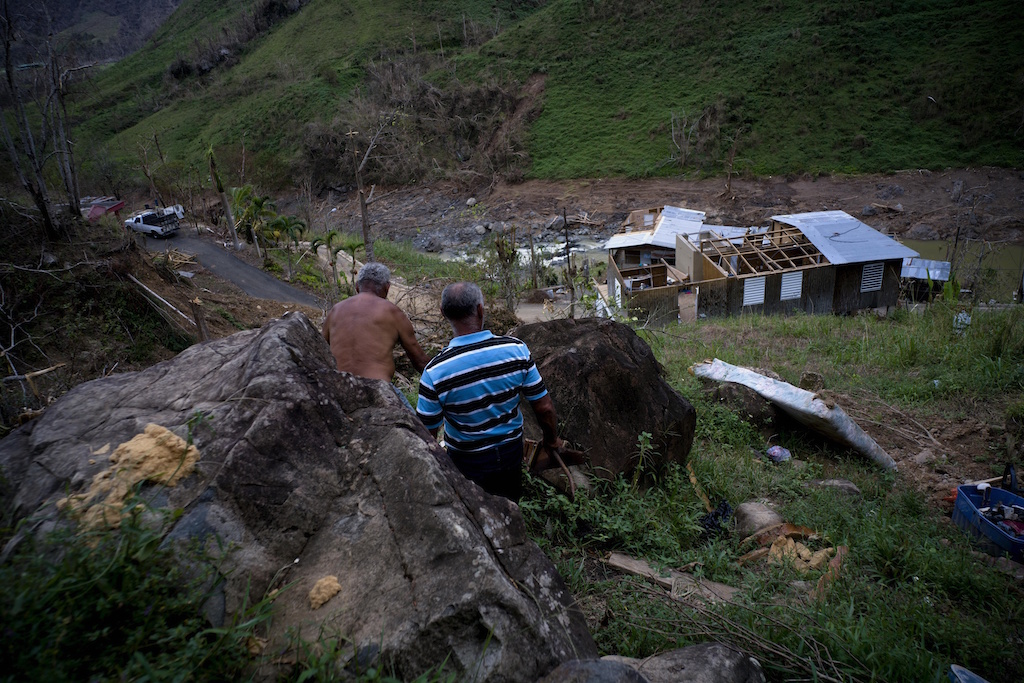 The remains of a house destroyed by Hurricane Maria in Morovis, Puerto Rico. (Ramon Espinosa / AP)
The remains of a house destroyed by Hurricane Maria in Morovis, Puerto Rico. (Ramon Espinosa / AP)
The terrible global-warmed tragedy that has ripped through Puerto Rico and the Virgin Islands now offers us a unique opportunity—and a vital imperative. As Elon Musk and others in the business of clean, green power have made clear, the islands’ centralized fossil-fueled electric grids should not be rebuilt.
Instead, they advocate entirely replacing them with decentralized, community-owned micro-grids, powered by solar panels, wind turbines and locally grown biofuels. That conversion would guarantee the islands a cheap, secure energy supply while fighting the global warming that made these hurricanes such fearsome destroyers of life and property.
Hurricanes Irma and Maria have stripped these American territories of their fossil-fired electric grids. The devastation includes more than 50 Puerto Rican hospitals going dark, with tragic loss of life.
Without pumps for water, cell towers for communications, refrigeration for food and medicines, and so much more, the islands’ immediate future is grim. The official four-to-six month timeframe for restoring the central electric grid guarantees more death and desperation.
Nearly all the islands’ power has come from fossil fuel burners, including one fueled by coal imported from Colombia. Electric rates are far higher than on the mainland United State, worsening the debt so cruelly cited by Donald Trump immediately after disaster struck.
About 2 percent of Puerto Rico’s electricity has come from wind and solar. Some installations sustained serious damage. But at one 40-acre flower operation, three-quarters of 244 solar panels—installed six years ago at a cost of $300,000—sailed through the storm, and were producing usable power the next day. The 44 turbines at the 101 megawatt Santa Isabel wind farm on Puerto Rico’s south side also escaped serious damage (as did some 12,000 Texas wind turbines during Hurricane Harvey).
Tesla’s Musk helped green nearly the entire energy supply of American Samoa, as well as much of Hawaii’s island of Kauai. Puerto Rico and the Virgin Islands are far larger. But advanced collectors and battery storage systems, along with a new generation of wind turbines, are poised to quickly replace the islands’ rickety, obsolete energy supply system with a green network of storm-proof micro-grids—and a showcase for global change.
The Caribbean is also fertile ground for biofuels to power the region’s automobiles. Brazil runs a very large portion of its vehicular fleet by turning bagasse, a byproduct of growing sugar, into an alcohol-based fuel that’s far cheaper and more efficient than imported gasoline.
And the islands could use a massive influx of LED lights, along with other energy-efficient technologies to streamline demand.
But micro-gridding will be key. The islands are mountainous, with many remote villages. Most could be made self-sufficient quickly with local networks powered by rooftop panels, small wind arrays and homegrown biofuels.
In the cities, grids that go neighborhood by neighborhood and building by building can be pieced together far more cheaply than with the wasteful, obsolete reconstruction of a national pole-and-wire dinosaur.
Tesla already is shipping in Powerwall solar/battery arrays. The Sonnen Company is lending expertise acquired in Germany’s energiewende conversion to 100 percent renewables. Even lacking the Caribbean’s intense sunlight and steady breezes, many German communities are headed to complete energy self-sufficiency based on rooftop panels and local-owned turbines.
As renewable prices continue to plummet, the Caribbean islands should follow Germany’s lead, and take Elon Musk’s offer to help them go totally green.
Irma and Maria have exacted a terrible price for wiping the slate clean.
But with their abundant solar and wind resources, Puerto Rico and its Caribbean neighbors can emerge relatively quickly and cheaply with a sustainable, import-free network of local-based micro-grids.
Their reward will be far lower long-term rates and a modern, reliable energy supply system designed to survive the next global-warmed wave of killer storms.
Independent journalism is under threat and overshadowed by heavily funded mainstream media.
You can help level the playing field. Become a member.
Your tax-deductible contribution keeps us digging beneath the headlines to give you thought-provoking, investigative reporting and analysis that unearths what's really happening- without compromise.
Give today to support our courageous, independent journalists.
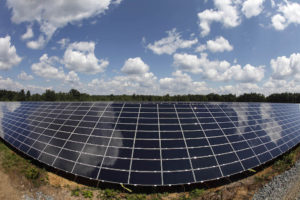
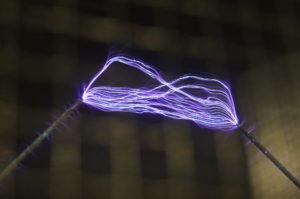

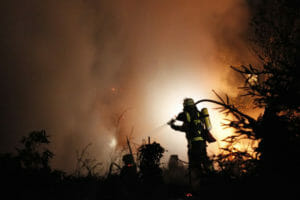
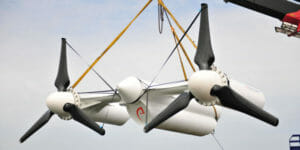
You need to be a supporter to comment.
There are currently no responses to this article.
Be the first to respond.